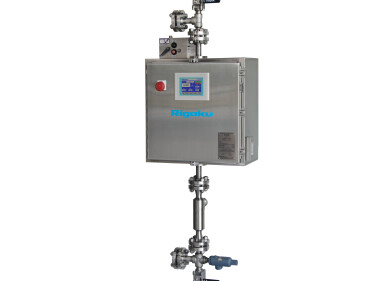Measurement and Testing
What Impact Have Iran Protests Had on Oil?
Jan 18 2018
Mass protests in Iran have already resulted in over 20 deaths and hundreds of arrests. However, as the country which holds ten percent of the world’s proven oil reserves, this unrest is also impacting the oil industry. How – and why exactly? Read on as we take a closer look at the Iranian protests and how they’re affecting oil.
What’s going on in Iran?
In short, Iran’s protests are down to a failing economy and falling standards of life. Costs are rising for essentials like fuel and food and Iranians have turned to the government for answers. At the same time, the government has developed something of a bad reputation among Iranians.
2015 saw Iran reach a landmark deal with P5+1 and European Union countries regarding its nuclear programme. As a result, the international sanctions regime was lifted, giving Iran significant economic relief. When the benefits of this deal had no positive impact on the majority of the Iranian public, they began to see the government as highly corrupt.
Promising performance for US oil
At the same time as the protests, West Texas Intermediate (WTI) crude and Brent crude saw their highest futures since mid-2015 – at $61.63 and $67.84 a barrel respectively. Experts have put this down to the Iranian problems, in part. Investors are anticipating problems for Iranian oil production with protests continuing. Any drop in supply on their end would make other oil products more valuable.
However, they also suggest that other factors have contributed to the strong performance of US oil. “While the Iran tensions are certainly a factor, the slew of remarkably strong economic data today is also forcing the rally,” explains John Kilduff from Again Capital LLC.
What else is to blame?
On top of the Iranian issues, there has been a pipeline outage in Libya causing a reduction in available oil. Added to that is the strong economic performance in major economies like the US and Germany, which has fuelled more investment. It’s even possible that the development of more accurate testing methods for gasoline products is making oil more attractive.
Looking into the future, past these temporary problems but potentially still within OPEC’s ongoing production cut, the situation is expected to return to more or less the same.
The Libyan pipeline outage has already been resolved, and Iran’s problems haven’t actually affected its oil production yet. US production has also continued to rise, and is gradually approaching a massive 10 million barrels per day. If all of this continues without a fall in production in Iran, experts suggest prices will fall in the coming months.
Digital Edition
PIN 25.5 Oct/Nov 2024
November 2024
Analytical Instrumentation - Picturing Viscosity – How Can a Viscometer or a Rheometer Benefit You? - Sustainable Grease Formulations: Evaluating Key Performance Parameters and Testing Method...
View all digital editions
Events
Dec 03 2024 Dusseldorf, Germany
Dec 08 2024 Anaheim, CA, USA
Turkey & Black Sea Oil and Gas
Dec 11 2024 Istanbul, Turkey
Dec 19 2024 Aurangabad, India
Jan 20 2025 San Diego, CA, USA



















